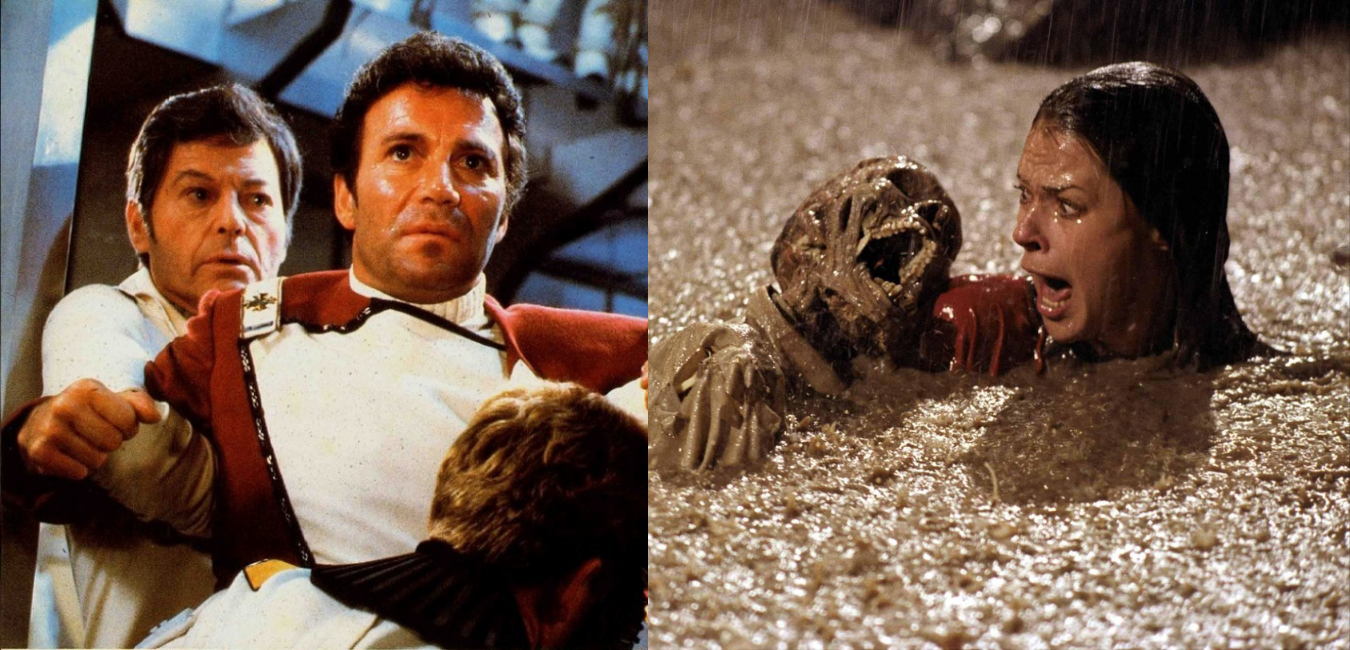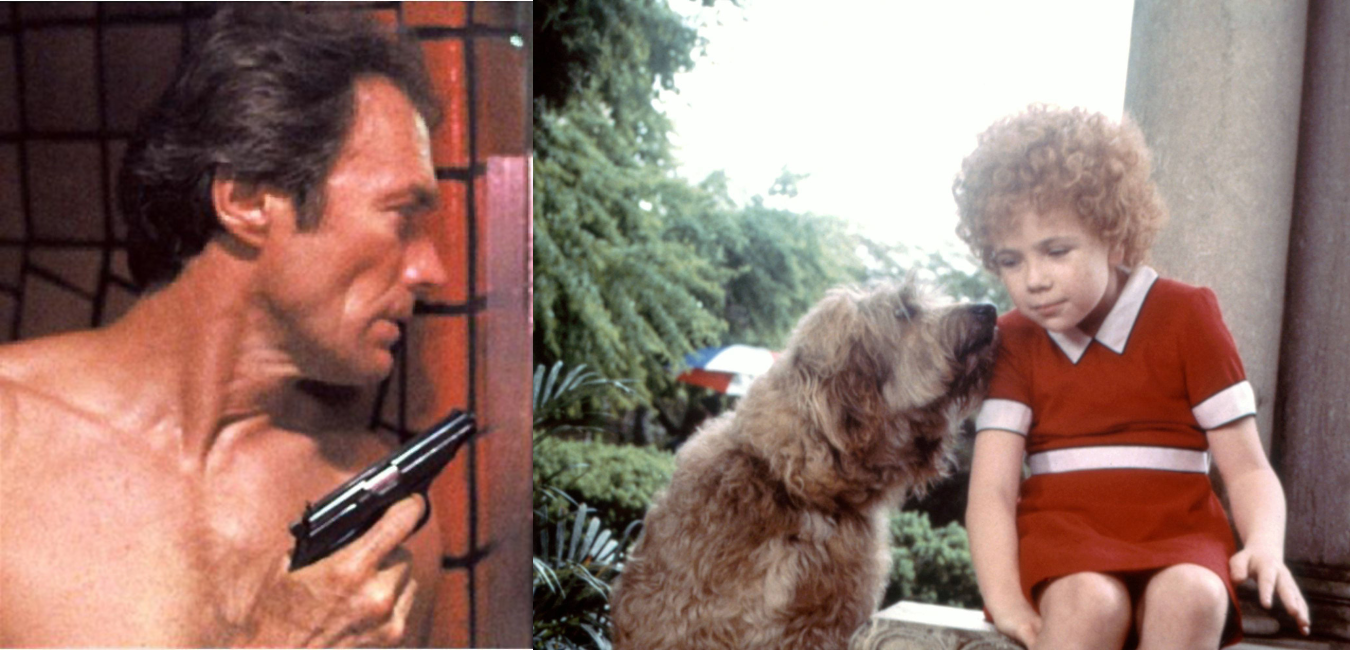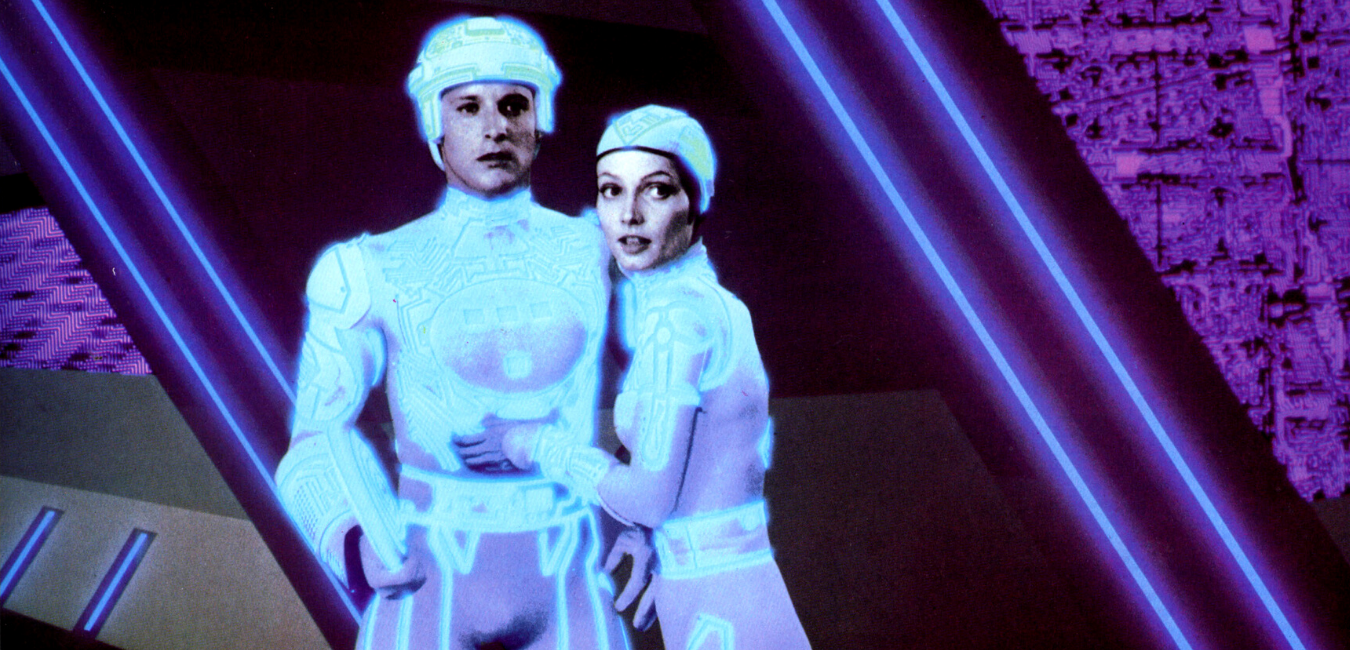Why audiences connected to 'E.T.,' creating an unmatched success

Elliott (Henry Thomas) and his friend fly to new experiences in “E.T. the Extra-Terrestrial.” (Universal Pictures/MovieStillsDB.com)
"E.T. The Extra-Terrestrial"
Directed by Steven Spielberg
Released June 11, 1982
Where to Watch
Steven Spielberg was already known as one of the most famous filmmakers ever. His second feature film, "Jaws," was such an enormous box office hit in 1975 that it manifested the term "summer blockbuster." Two of his next three movies, 1977's "Close Encounters of the Third Kind" and 1981's "Raiders of the Lost Ark," were massively popular films among the highest ticket sellers of their respective years.
But that was nothing compared to how much "E.T. the Extra-Terrestrial" would change the entertainment landscape for at least a decade.
The movie concerns a lonely 10-year-old boy, Elliott (Henry Thomas), who lives in a developing suburban town in California with his recently-divorced mother Mary (Dee Wallace), older brother Michael (Robert MacNaughton), and younger sister Gertie (Drew Barrymore). A nearby alien spaceship leaves one of its own behind, and the being finds his way to Elliott's home. The boy takes him in and names him E.T.
Over the next few days, Elliott introduces E.T. to his siblings, Gertie teaches the alien how to talk, and the kids notice E.T. has extraordinary, life-saving gifts. Elliott and E.T. bond quickly, not just emotionally, but they form an empathic connection as well. When one of them feels something, the other experiences it as well … for good and ill.
However, an unknown group of adults is aware of the alien landing. They are searching the neighborhood to locate E.T. The alien also knows that he cannot remain on Earth forever and is looking for a way to communicate with his people to find his way home.
What separates "E.T." from its fellow box-office champions is that it's not about the thrills and adventure but about finding ways to connect with each other. We see through Elliott's perspective how lost he feels after his father left the family (although clearly, Mary's not close to being over it either). His brother has a group of close friends to hang out with, and Gertie seems to be doing fine, but for Elliott, his world does not seem normal, and nothing he does seems to work out right.
Elliott finds a friend he can talk to with E.T., first by giving him a tour of his bedroom and then sharing his toys with the alien. Once E.T. learns to communicate in English, Elliott and he can have more of a shared connection to express their feelings and desires. Meanwhile, Elliott pulls away from Mary, first by a thoughtless comment referencing his father, then by hiding the alien from his mother. On her part, Mary is so distracted by managing her adult life as a single parent that she doesn't even notice the short alien wandering around her kitchen. The power of observation and communication (or lack thereof) informs every relationship in this story.
Communication also becomes the key to the survival of these characters. E.T. manages to build some kind of gadget out of Elliott's toys and household items to send a message to his people, inspiring the famous "Phone home!" quote. He simply cannot survive in this environment for a prolonged period and soon falls deathly ill. The shadowy group tracking the alien discovers E.T. at Elliott's house and quarantine the entire house. The organizer of the group, only known as Keys (Peter Coyote), tells Elliott that, like him, he's been fascinated by the unknown of space since he was a child. As they communicate, Elliott begins to see an adult perspective for the first time (as does the audience, as every man or woman outside of Mary has been carefully obscured by Spielberg's direction). The conversation creates a little trust between them. Once E.T. is rejuvenated by the arrival of his spaceship and heads back to his home, we get the sense that despite Elliott's heartbreak, he can rely on adults like Mary and Keys to help him through the process.
Spielberg's parents divorced when he was just becoming an adult, but the experience still left a profound mark on him. In a way, "E.T." was a way for him to process his feelings about the divorce, his childhood, and a small idea he had while making "Close Encounters:" What if the alien never got back on the ship?
"I always intended to tell the story from the point of view of kids," the director said in the featurette, "Steven Spielberg and E.T." "It was about the empowerment of those kids. I thought about this as a story that I could relate to as much as I had ever related to any story I brought to the screen. This was my first personal story."
Spielberg's personal story had a seismic impact on the world. "E.T. The Extra-Terrestrial" quickly became the biggest movie of the year (more often than not, remaining the number one grossing movie every weekend through Thanksgiving of 1982), and eventually, the top drawing film of all time with $359 million in ticket sales during its initial run.
Not only was "E.T." a rapturous hit with audiences, but critics also flowered the film with praise, cementing Spielberg's status as the most skilled populist filmmaker of his time.
"' E.T. the Extra-Terrestrial'" represents a far more miraculous achievement in that Spielberg demonstrates an uncanny ability to transmit the feelings of his juvenile characters," wrote Kathleen Carroll for The New York Daily News. "The marvel of this extraordinary movie is that it captures for even the most jaded grownup that pleasurable state of innocence and awe that only children are fortunate enough to experience."
The film was nominated for eight Academy Awards, including Best Picture and Best Director for Spielberg, but only won one for John Williams' extraordinary score. While "E.T." not winning Best Picture is rarely cited as one of Oscar's great mistakes, it certainly has made more of an impact in memory and inspiration than the actual Best Picture winner of 1982, "Gandhi."
"E.T." also took over pop culture, becoming an inescapable character with magazine covers and toys displaying his image throughout retail stores. Reese's Pieces saw its sales explode after the candy made a crucial appearance in the movie. Theme park rides were built as another attraction for "E.T." fans. Famously, video game developers rushed an "E.T." came out for the Christmas season, but the game was impossibly flawed in its design. Sales did not meet expectations, dealing a blow to the entire video game industry and leading to many unsold copies of "E.T." and other Atari 2600 products being dumped in a landfill.
The movie also spawned a science-fiction subgenre of "kids befriending aliens" films throughout the 80s, including "The Last Starfighter," "Explorers," "Flight of the Navigator," "My Stepmother is an Alien," and "Mac and Me."
The one thing that "E.T. the Extra-Terrestrial" did not inspire as a massively popular movie from the 80s is a sequel, making it a cinematic unicorn in Hollywood. It is a rare case of filmmakers and studios agreeing that as iconic and beloved as the picture is, there was little hope anybody had for coming up with another story that could equal or surpass the original "E.T."
"When the movie became such a phenomenon, I had a lot of pressure from the studio to make a sequel," Spielberg said. "I spent a couple of months doing exactly that, thinking about what Elliot's life would be like without E.T. and how would Elliott and E.T. come back into each other's lives. I couldn't find a satisfactory enough answer. I went to the studio and said, I think we made the perfect movie, it should end the way it ended, and we should never revisit it again. And the studio agreed."
And there it is. "E.T. the Extra-Terrestrial" remains an unmatched success in Hollywood history. This perfect family film became a smash hit that couldn't be followed by its peers or even the director himself. Adventures and thrills can be reimagined and recreated in franchises like Star Wars, Ghostbusters, and the Marvel movies, but genuine childhood connections are harder to come by.
At the Box Office: "E.T. the Extra-Terrestrial" won its box office debut with $11.8 million; this time, not the powerhouse debut you'd expect. "Star Trek II: The Wrath of Khan" and "Rocky III" both had higher debuts. The key to "E.T.'s" success was maintaining or exceeding that amount for a month and a half during the most competitive summer months. Audiences kept coming to see "E.T." for the rest of 1982 and well into 1983, still grossing $1 million playing on 677 screens one year after its release. It also helped elevate the collective box office, posting $60 to $90 million weekends all summer.
Last week's box office champ, "Star Trek II: The Wrath of Khan," fell to second place with $14.3 million in domestic sales. "Rocky III" was just behind with $13.1 million, and "Poltergeist" was fourth with $9.1 million.
And while it was the best of times for "E.T.," it was the worst of times for "Grease 2." The sequel to the popular musical film face-planted in its debut weekend with $6.8 million, good enough for fifth place. The film was a critical failure with audiences and would quickly slip out of theaters after its third week, finishing with $15.2 million. However, since the film features an early starring role by Michelle Pheiffer and boasts a song list filled with kitsch value, "Grease 2" has become a cult favorite of fans.
Next Week: "Annie" and "Firefox"
Mark is a longtime communications media and marketing professional, and pop culture obsessive.




